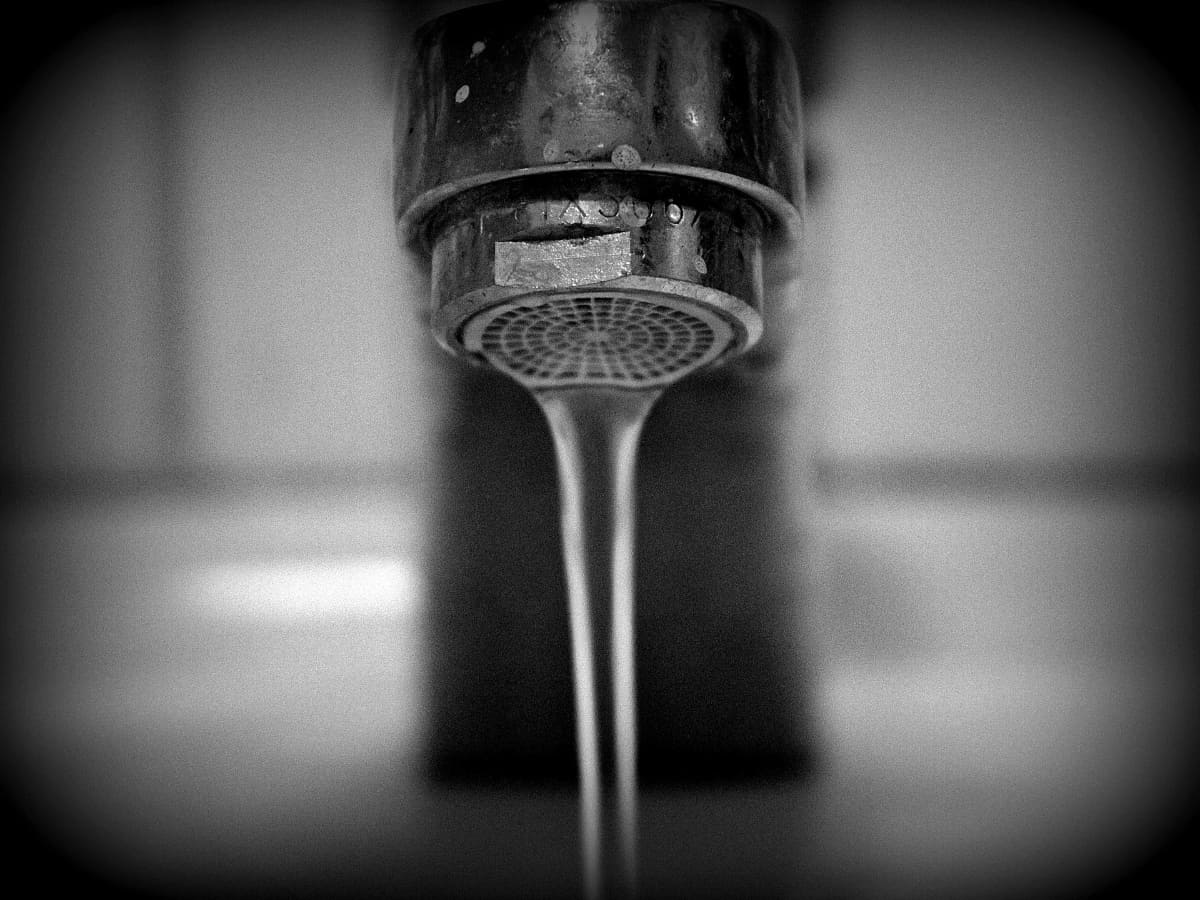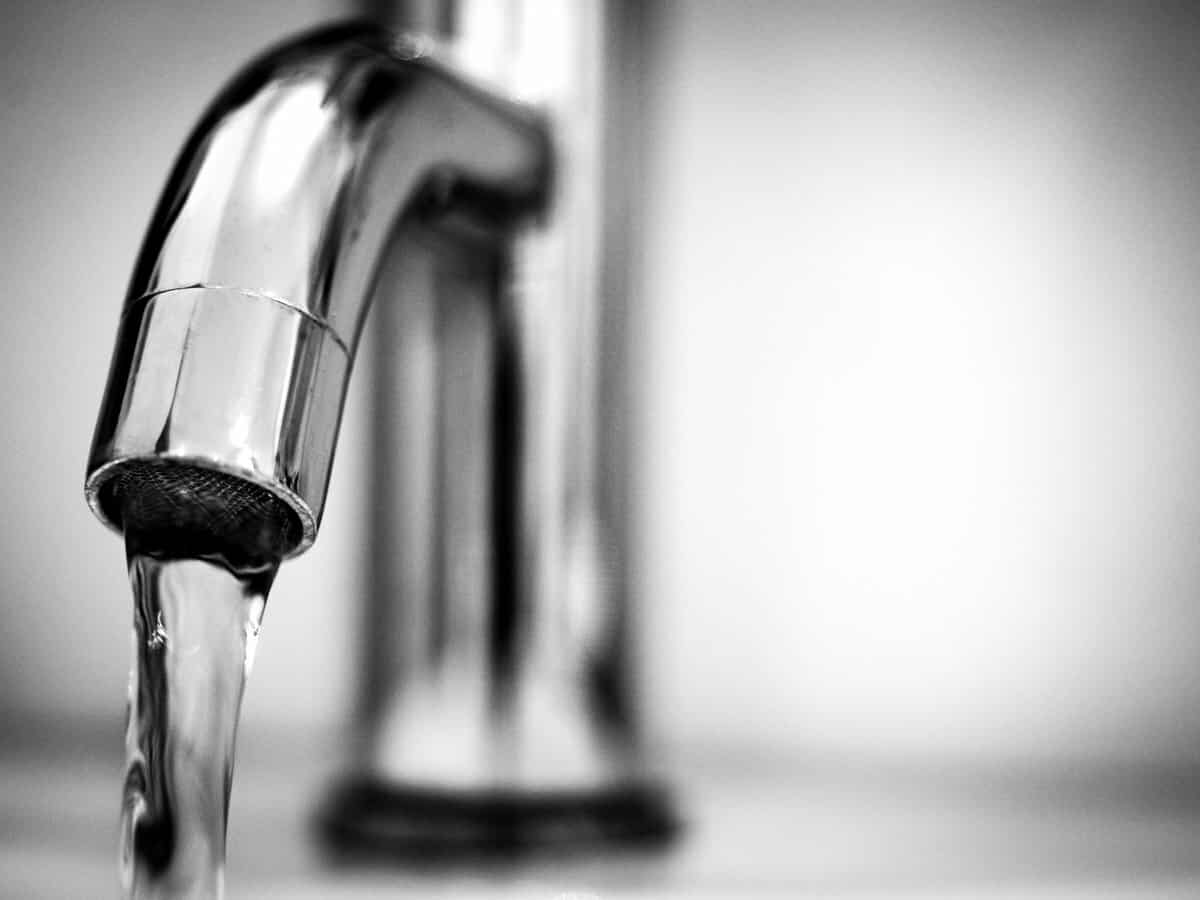If you didn’t start jamming to Jay-Z when reading the title, you probably weren’t born in the ’80s and that’s okay. I’m glad we got your attention! Hard water is one of the peskiest residential problems around the country. Hard water interferes with nearly every aspect of cleaning. This includes washing your hair to laundering your clothes. It should be noted that hard water is not a health risk, but a nuisance because of mineral buildup on fixtures and poor soap and/or detergent performance. So if you’re taking a sip of water right now and worried about it being hard water- no need to panic. This will not affect your health, but your glass you’re drinking out of might be affected.
What Is Hard Water?
Simply put, hard water is the amount of dissolved calcium and magnesium that is in your water.
Have you ever washed your hands and then felt a slimy residue left behind? If you have, that’s your hard water. The high level of dissolved minerals will leave that feeling behind. You can also see remnants of hard water left behind on clean dishes in the form of “spots” or cloudy dishes.
There are four different classifications of water, and the level is dependent on the milligrams (mg) of calcium carbonate per liter (L), reported in its parts per million (ppm).
- 0 to 60 mg/L as calcium carbonate is “soft water”
- 61 to 120 mg/L is “moderately hard”
- 121 to 180 mg/L is “ hard”
- Anything over 180 mg/L is considered “very hard”

How Does Hard Water Happen?
Water systems that use the groundwater as their source are most common for having hard water. This is because the water moves through soil and rock, causing the rock to dissolve small amounts of naturally occurring minerals and deposits them into the water. Remember, each city has different levels of these minerals in their soil content, so each city’s water hardness level will be different. Where Dallas is considered to have moderately hard water, Houston has hard water, and Austin and San Antonio have very hard water. There are maps that show what areas in the United States have harder water.
Hard Water Problems
Here are four problems that we have recognized that are caused by hard water:
- Grimy rings around the bathtub and soap scum tiles are a result of your soap and detergent negatively reacting with hard water.
- Hard water can have a negative impact on your bank account. Not only do soaps and detergents have to overcome water hardness. Meaning you will have to use more in order to be effective. You will also have to purchase new appliances like your washing machine, water heater, dishwasher, or water-dispenser on the refrigerator more frequently.
- Hard water resists clean rinse of clothes. Ever had a sour smell on your clothes after you washed them and dried them in an adequate amount of time? The build-up of detergent attracts stains and weakens fabrics, causing clothes to wear out faster.
- The chemical reaction between hard water and soap can clog pores, dry the skin, and leave dull deposits on your hair, rendering it flat, falling out more frequently, and lifeless.
Hard Water Solutions
Lucky for everyone, there are plenty of solutions to help with these hard water problems.
There are a few different “at home” methods in order to fix your hard water problems, but note that these solutions are a one-time fix. In order to have the same results every time, you would have to repeat the process every time.
- First, you can boil the water, which can be time consuming and a short term fix.
- You can use vinegar for your laundry and dishwasher.
- Last, you can use a filtered water pitcher. However, you should note that not all filters are compatible with removing the calcium and magnesium.

However, the best way to solve this problem is by purchasing a water softener.
A water softener does exactly what it is named- it softens the water. A water softener uses salt pellets. The hard water is then filtered through the salt, turning the hard water into soft water. The best part about water softener is that you can see results almost immediately. Your laundry should not be as gray or dull, and your dishes shouldn’t show up cloudy. A water softener will also eliminate the build up in your pipes and in your hot water heater. This will make them stronger and more efficient to use, saving you money down the road.
Ready to get a water softener? We’re here to help you! Our team of professionals are on standby to give you a free quote, teach you about your home, and set up installation. Contact us today at 1-833-433-0331. We look forward to hearing from you!



